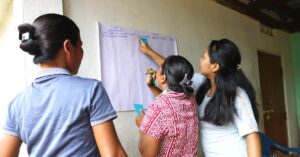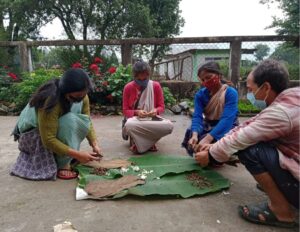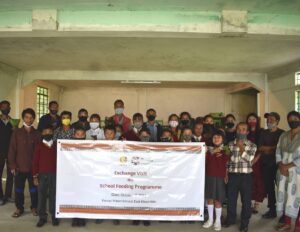Pests are posing a large problem for organic produce over the years, resulting in pesticide usage; chemical pesticides and fertilizers pose a humongous threat to the quality of crops. The indigenous farmers across Meghalaya have been tackling this problem in their own ways, such as by using natural pesticides to effectively get rid of harmful organisms from quelling good quality produce and also keep the produce and the soil healthy. On the other hand, chemical pesticides adversely affect ground and surface water; contaminate the soil and even inadvertently affect non-targeted crops and organisms. Moreover, there is an overarching effect on humans via the food chain.
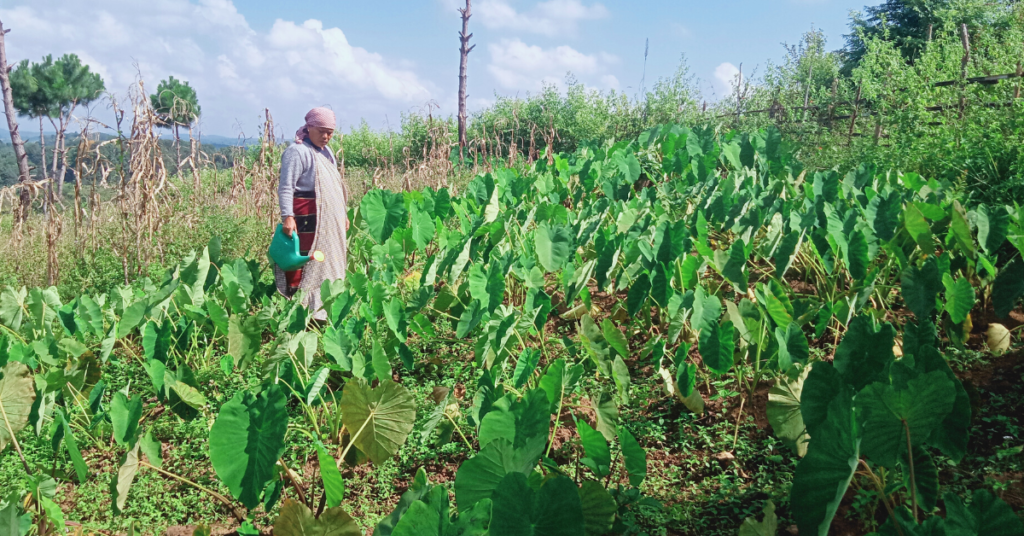
Kong Rihun Sungoh is a custodian farmer who has been farming for over 15 years in the village of Ksehrynchang. Ksehrynchang is an active village in the ongoing NESFAS project “Empowering Indigenous Communities through Agroecology Learning Circles (ALCs) for resilient, integrated and innovative natural resource management”, which is supported by MBMA and funded by the World Bank. She decided to conduct an experiment and came up with an innovative method by using tobacco leaves, water, tobacco and lime for the management of pests like corm borers and loopers. She mainly cultivates crops such as Yam, Taro, Turmeric, Ginger and Maize. She has been using this process for over 3 years and has seen effective results on the same.
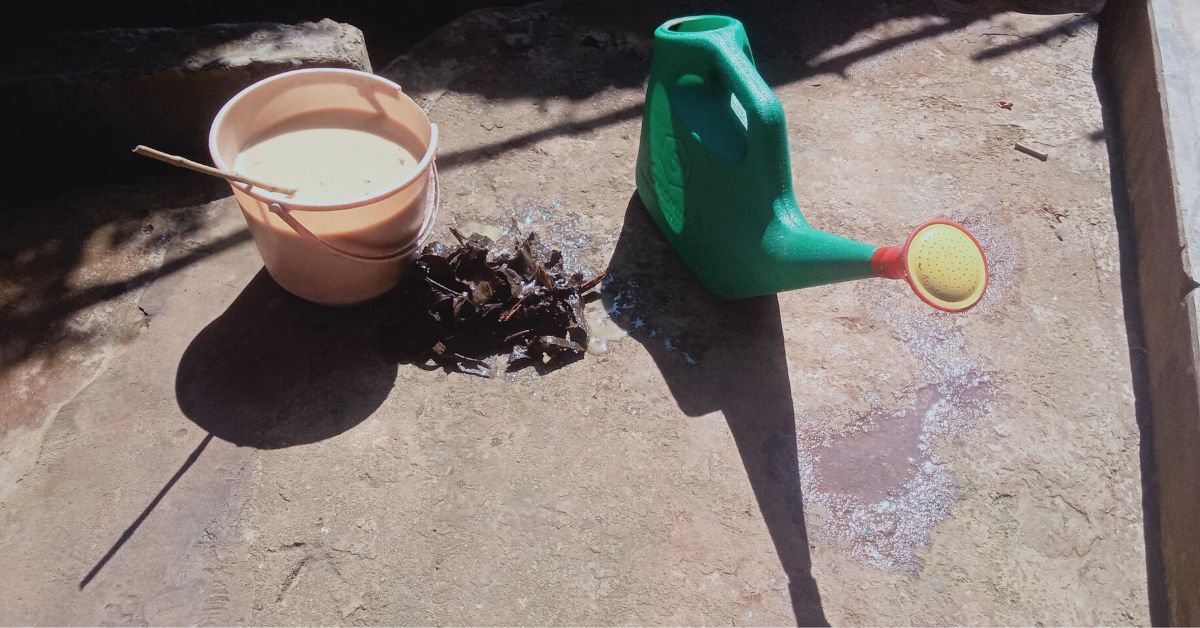
The process is simple; one must use around 10 litres of water, tobacco leaves, tobacco and lime. Hydrated lime is a popular insecticide and is known to dry out and suffocate pests; nicotine, which is a primary component of tobacco, is an alkaloid which helps in acting as an anti-herbivory insecticide. Hence, this combination is a great choice to naturally get rid of harvest-consuming crops. The hydrated mixture is left for one day, mixed and sprayed onto the crops. This process is repeated once a week so as to not over-contaminate the crops with this insecticide.
“The main objective behind this experiment is to bring about healthy and wholesome crops without the use of harsh and corrosive chemical fertilizers. These natural ingredients cause less harm to the adjacent organisms and do an active job of getting rid of all kinds of pests and insects.” Expressed Kong Rihun Sungoh. She has also managed to disseminate the details of this process to the 30 other ALC members of the Ksehrynchang village who are also learning to apply the same to their respective yields.

